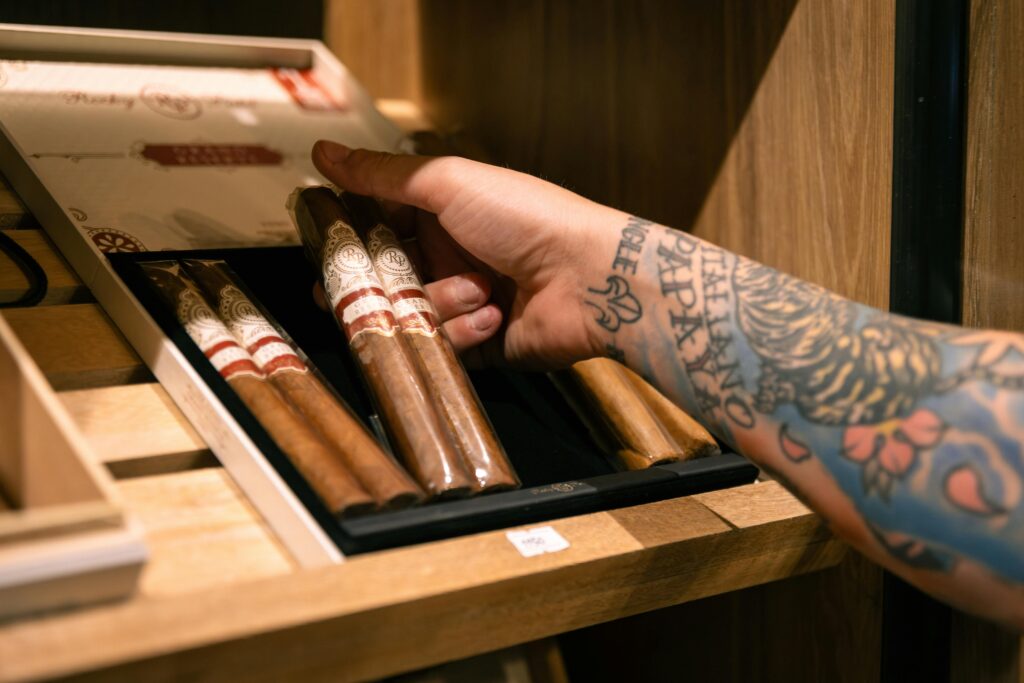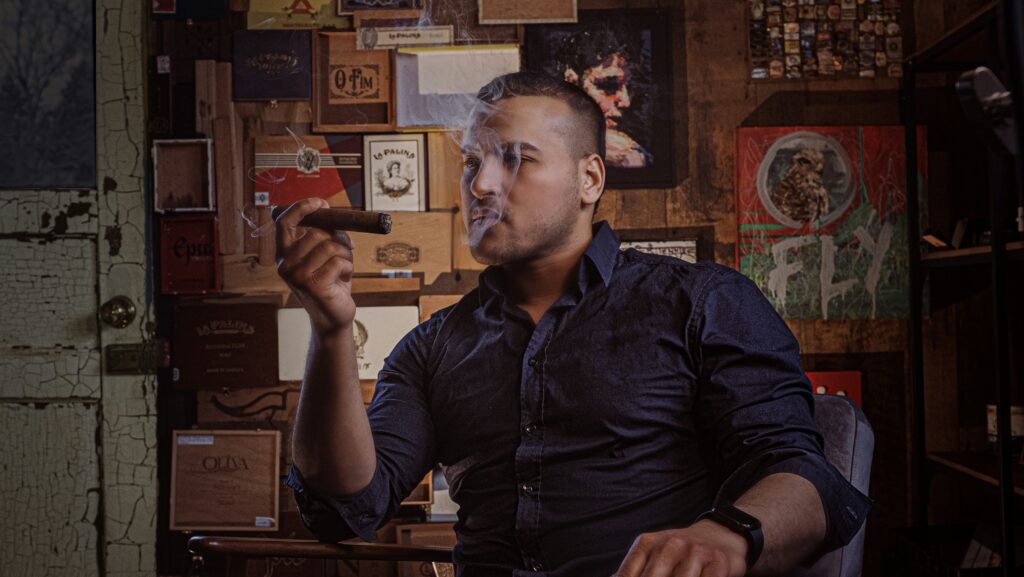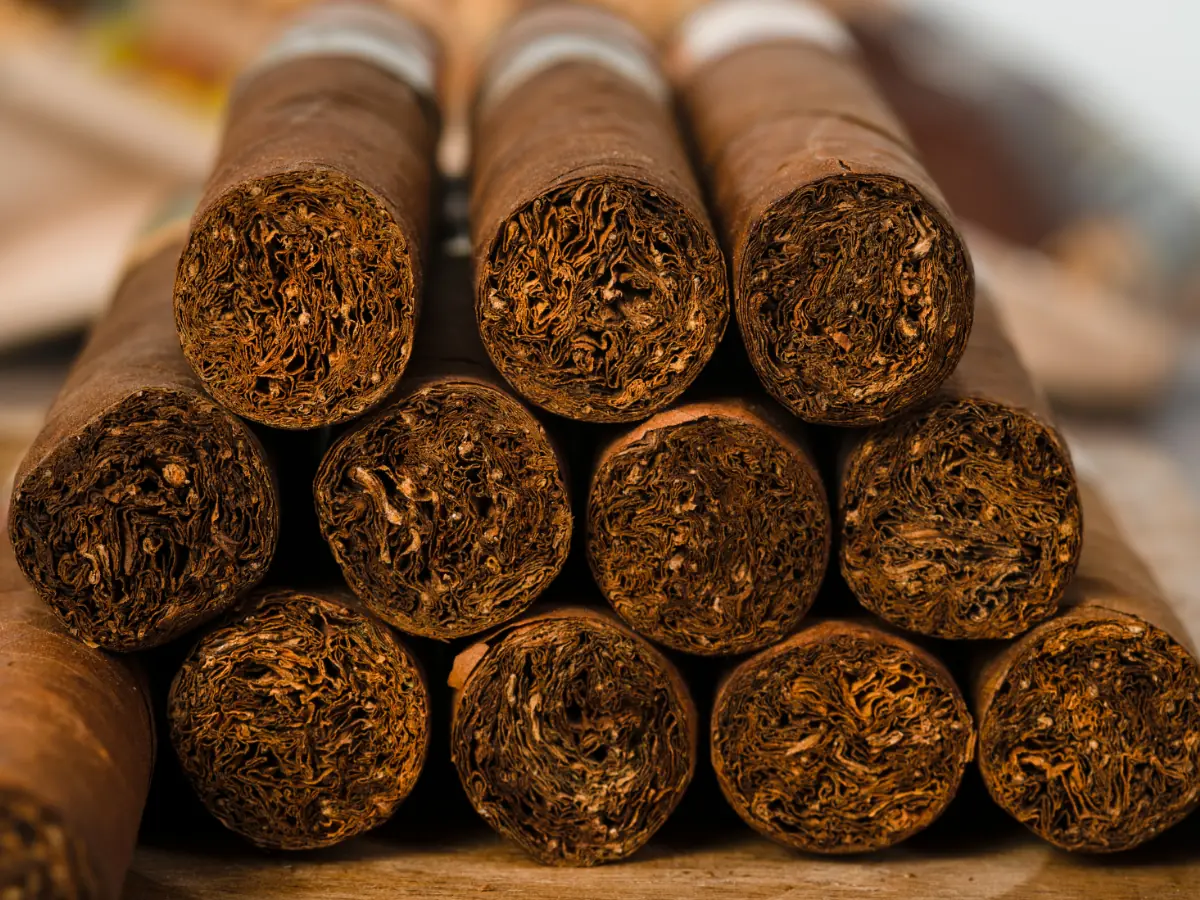Cigars are prized for their flavor, aroma, and the experience they bring. But can cigars go bad? The answer is yes. If not stored properly, they can dry out, lose their oils and flavors, or even grow mold.
Proper storage, however, can ensure cigars last for years, even decades.
In this article, we’ll explore the factors that affect a cigar’s lifespan, how to recognize signs of a bad cigar, and how to store cigars to keep them fresh and enjoyable.
Factors Affecting Cigar Lifespan
Cigars are delicate products that require specific care to maintain their quality. Without proper storage, cigars can go bad in as little as seven days. Here’s what happens when they’re not cared for correctly:
- Dry cigars lose their natural oils, nicotine, and flavor. They may crack and burn unevenly, making them unpleasant to smoke.
- Excessively moist cigars are prone to sogginess, uneven burns, and mold growth, which can ruin not only the cigar but also others stored nearby.
Increase Cigar Lifespan with Proper Storage

Maintaining a stable environment is key to cigar longevity. Experts recommend a humidity level of 70% and a temperature of 70°F, though a range of 65-72% humidity and 65-72°F is acceptable. A high-quality humidor is essential for achieving these conditions. With proper storage, cigars can last indefinitely.
- Humidors: These containers provide stable humidity and temperature to preserve your cigars.
- Alternative storage: In a pinch, Ziploc bags or Tupperware containers with humidification packs can work. However, they lack the long-term stability of a humidor.
How Cigars Go Bad
When cigars go bad, it’s typically due to improper humidity levels. Here’s how too much or too little humidity can affect them:
Too Little Humidity
Dry cigars are brittle, lose their oils, and burn too hot. Rehydrating a dry cigar can help restore its structure, but lost flavor is often gone for good. Avoid overexposure to moisture during rehydration, as it can lead to other problems.
Too Much Humidity
Overly moist cigars become soggy, burn unevenly, and are at risk of mold. Maintaining proper moisture levels prevents these issues and keeps cigars in their best condition.
Signs Cigars Have Gone Bad
Recognizing when a cigar has gone bad is crucial to preserving your collection. Here are common signs to look for:
Dry Cigars
Dry cigars are brittle and crack easily. They lack the oils that give cigars their aroma and flavor. While gradual rehydration can restore moisture, the flavor is often permanently affected.
Over-Humidified Cigars
These cigars feel soggy, may grow mold, and often burn unevenly. Excess humidity or high temperatures are the usual culprits.
Mold
Mold is a serious issue. Unlike plume (harmless white crystals), mold is blue-green, sticky, or pasty and cannot be brushed off. Mold ruins cigars and can contaminate your humidor.
Methods to Check Cigar Freshness
Regularly checking your cigars ensures they remain in top condition. Here are some simple methods:
The Pinch Test
Gently squeeze the cigar. A properly humidified cigar will have a slight give. If it’s too firm or crackling, it’s dried out. If it feels overly soft, it’s over-humidified.
Smelling the Cigar
Fresh cigars have leathery, woody, or sweet aromas. Dried-out cigars lack a distinct scent because the oils have evaporated.
Plume vs. Mold
Plume is a sign of proper aging and appears as small white spots that brush off easily. Mold, on the other hand, is sticky or pasty and permanently damages cigars.
Does the Cigar Draw Properly?
Test the airflow by gently puffing on an unlit cigar. Over-humidified cigars often have a restricted draw, requiring extra effort to smoke.
The Process and Benefits of Aging Cigars

Aging cigars can improve their flavor profiles, mellowing harsh notes and creating a smoother smoking experience. However, the effects of aging vary by cigar type:
- Maduros: Become smoother and more refined.
- Connecticut wrappers: Develop a velvety texture.
- Ligero tobaccos: Reduce intensity and become more balanced.
Stronger blends can improve over a decade, while milder cigars peak within five years. While flavors eventually plateau, cigars past their peak are still enjoyable, even if their profile changes.
How to Keep Cigars From Going Bad
To prevent cigars from going bad:
- Invest in a quality humidor to maintain stable humidity and temperature.
- Use alternative storage methods like Ziploc bags with humidification packs if necessary.
- Regularly inspect cigars for signs of dryness, over-humidification, or mold.
- Experiment with aging to explore how flavors evolve over time.
Final Thoughts
Cigars are a joy to collect and smoke, but their longevity depends on proper storage. By maintaining the right humidity and temperature, you can enjoy cigars at their best for years to come.
Whether you’re preserving premium vintage cigars or experimenting with aging, the experience of a well-kept cigar is always worth the effort.

Leave a Reply